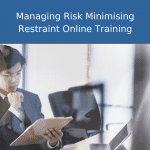Description
About Our Diabetes Awareness Online Training
This diabetes awareness online training has been designed to develop and support healthcare professionals who want to learn more about diabetes, and who may provide care for people with diabetes.
- Developed by professionals
- Accredited by The CPD Accreditation Group
- 100% online, learn at your own time and pace
- Translates into over 100 different languages
- Instant certificate downloaded
Key Points
- Learn about Diabetes
- How to treat diabetes
- Monitoring
- Complications
- Impact of Diabetes
- Supporting people with Diabetes
- Assessment
For organisations looking to have a face-to-face training on diabetes awareness or diabetes medication training, please reach out to us
Course Information:
This 2-hour online course provides comprehensive diabetes awareness training for healthcare professionals, caregivers, and the general public.
Prerequisites:
No prior knowledge is required.
Topics covered in the diabetes Awareness:
Types of diabetes, diagnosis, causes, medications, diet, exercise, foot care, sick day management, low blood sugar, complications.
Assessments:
Short quizzes at the end of each module, final assessment exam.
Teaching methods:
- Video lectures
- Slide presentations
- Infographics
- Case studies
- Knowledge checks
Delivery platform:
Online e-learning portal, iOS/Android app Translates into over 100 different languages
Schedule:
Self-paced, no live classes. Learn at your own pace.
Technology used:
Interactive course portal, short instructional videos.
Course Content:
- Introduction to Diabetes
- Signs, Symptoms, and Risk Factors
- Treatment and Care
- Prevention and Healthy Lifestyle
Course Breakdown
- Diabetes Basics – Types ( type 1, type 2), causes, diagnosis
- Treatment – Medications, insulin, therapy. See our diabetes medication training.
- Monitoring – Blood glucose, HbA1c, test results
- Complications – Short and long-term issues, prevention
- Living with Diabetes – Diet, exercise, lifestyle
- Support – Creating a helpful environment
- Final Exam – Test knowledge
What You Will Learn
- Diabetes types: Type 1, Type 2, gestational
- Diagnosis and testing
- Medications and insulin – uses, types, side effects
- Checking blood sugar – meters, CGMs
- HbA1c testing
- Short term issues – high/low blood sugar
- Long term issues – kidney, eye, nerve, heart
- Healthy eating and meal planning
- Exercising with diabetes
- Workplace accommodations
- Finding community support
Who the course is for:
Certain groups should take diabetes awareness training. This includes:
- Doctors, nurses, pharmacists. They care for diabetes patients. Diabetes Training helps them give good care.
- Teachers, coaches, school nurses. They work with diabetic kids. Training helps them spot and handle emergencies.
- Family and caregivers. They care for diabetics. Training teaches monitoring blood sugar and insulin. Also diet needs.
- Co-workers and managers. Especially at jobs with diabetic staff. Training helps spot low blood sugar signs. And understand needed accommodations.
- Community centers, churches. Those with diabetic members can promote healthy lifestyles.
- Restaurant staff. Training gives diabetes and nutrition awareness. Helps provide healthy meal options.
- The public. Basic diabetes education promotes early diagnosis and prevention. It can target obesity, nutrition, exercise, and other risk factors.
Widespread diabetes education aims for earlier diagnosis. Healthcare team can help diabetic patient adjust for normal eating.
Better self-care. Lifestyle changes to prevent complications. A safe, supportive environment for diabetics. Training should fit each audience.
When will I get my diabetes awareness certificate?
Once you have successfully passed our course you will be able to download and print your certificate immediately.
As this course has been accredited by the CPD Group your certificate will contain the CPD logo and unique reference number.
Other face-to-face training
If you are a group of 3 or more you can decide to add these courses:
Send a mail or call to get to know about the prices and how to book.
Testimonials:
Diabetes Awareness FAQs
Is a diabetes awareness course completion certificate awarded?
Yes, you will receive a certificate of completion upon finishing all modules and passing the final exam that can be downloaded, printed, and shared.
Do I have to be a healthcare professional to take the course?
No, this course is created for a broad audience including caregivers, human resources staff, and the general public interested in learning about diabetes. No prior medical knowledge is required.
What is the passing score for the final exam?
You must score at least 80% on the final exam to pass and receive your certificate of completion. You can retake the exam if needed. You can always retake the exams.
When is diabetes awareness day 2023?
Diabetes Awareness Day in the UK is on 14 November 2023.
It is a day to raise awareness of diabetes and its impact on people’s lives. It is also a day to celebrate the achievements of people living with diabetes.
There are many ways to get involved in Diabetes Awareness Day. You can:
- Wear blue, the colour of diabetes awareness.
- Share information about diabetes on social media.
- Donate to a diabetes charity.
- Volunteer at a diabetes event.
- Talk to your friends and family about diabetes.
How to raise awareness about diabetes?
To raise diabetes awareness:
- Talk about it with friends and family.
- Share facts on social media.
- Support local campaigns and events.
- Promote a healthy lifestyle.
- Encourage regular check-ups.
- Share personal stories.
- Attend educational workshops.
- Collaborate with healthcare providers.
- Distribute info materials.
- Share online resources.
What are 6 things you can do to prevent diabetes?
- Eat healthy foods like fruits, vegetables, and balanced meals. Avoid too much sugar and fat.
- Exercise regularly or take walks to stay active.
- Keep your weight in a healthy range by eating well and staying active.
- Drink less sugary sodas and juices.
- Be mindful of portion sizes at meals to avoid overeating.
- Get regular check-ups with your doctor to catch problems early.
These basic steps can lower your risk of getting diabetes and keep you healthy.
What is Diabetes?
Diabetes happens when the body has high blood sugar. This happens when the body needs insulin. Insulin is a chemical that turns food into energy in the body.
There are two main types of diabetes:
Type 1 Diabetes
Type 1 happens when the pancreas stops making any insulin.
Most people get it when young.
Without insulin, blood sugar goes very high and makes the body pee a lot, drink a ton, and feel hungry all the time.
To treat Type 1 the body must take insulin shots every day to stay healthy. We don’t know exactly what causes Type 1 yet or how to stop it fully once it starts.
Type 2 Diabetes
Type 2 diabetes means the body does not use insulin well.
This makes blood sugar rise slowly over many years, usually in adults.
Being overweight, inactive, eating poorly and having diabetes in one’s family increases risk for Type 2.
Many people have Type 2 for a long time before noticing signs. Staying active and eating healthy foods can prevent Type 2 diabetes.
Once diagnosed, taking medicine, using insulin shots or changing lifestyle habits helps manage it.





